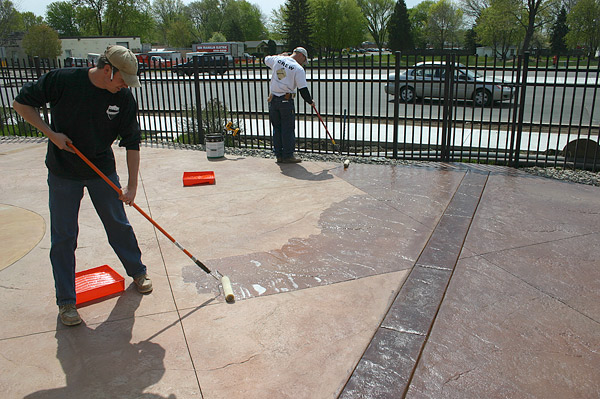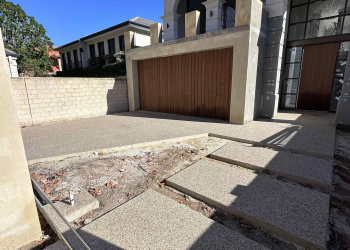Table of Contents
Concrete sealers are chemical compounds that are applied in liquid form to protect concrete
from staining, surface damage, corrosion, de-icing salts, and oil stains.
When applied concrete sealers do not alter the appearance of the concrete surface they are
applied upon. Therefore, concrete sealers help to preserve the appearance of a concrete
surface.
Concrete sealers also help to prevent the absorption of moisture when applied on exposed
concrete surfaces and help to resist the penetration of oil stains and other stains. Also, concrete
sealers help to extend the longevity of a concrete floor or a bare concrete surface.
Concrete sealers are very essential due to the nature of concrete especially, exposed concrete
structures like bridges, piers, beams, and many others which come in contact with attacks from
different types of physical factors and chemical compounds on a daily basis.
These physical factors and chemical compounds often lead to the rapid deterioration of the
exposed concrete structure. Similarly, some chemical compounds used for maintaining exposed
concrete structures may destroy the durability of concrete in the long term.
Physical factors that often affect the durability of concrete include the continuous freezing and
melting of ice on bare concrete structures in cold regions. Similarly, chemicals like de-icer and
anti-icer chemical compounds can seriously affect the longevity and durability of bare concrete
structures because of the surface scaling and internal frost damage due to the absorption of
these chemical compounds.
The effectiveness of a concrete sealer is dependent on the type of concrete sealer that is
chosen when a bare or exposed concrete surface is to be sealed. Also, you must keep in mind
the function of the concrete surface to be sealed and the location of the exposed concrete
structure. For example, bare concrete surfaces in a cold region will require a different concrete
sealer, in comparison to exposed concrete in humid regions. Also, indoor concrete structures
will require a different type of concrete sealer to outdoor concrete surfaces.
These factors must be carefully considered when selecting an appropriate concrete sealer for a
specific project. There are different types of concrete sealers in the market for you to select
from, they include:
Penetrating concrete sealers
This type of concrete sealer penetrates the surface of bare concrete structures and seal off the
pore spaces in exposed concrete. Penetrating concrete sealers are made up of chemical
compounds like siliconates, silanes, silicates, and siloxane.
This type of concrete sealer is very effective against de-icing salts and oil stains. Similarly, this
concrete sealer is effective against freezing and melting of ice in cold regions, without altering
the appearance of the exposed concrete surface.
Acrylic concrete sealers
This type of sealer prevents moisture from penetrating bare concrete by forming a protective
film layer on top of the concrete surface it is applied. This concrete sealer does not penetrate
the pore of concrete, it simply creates a barrier that prevents the penetration of moisture.
Acrylic concrete is produced as either water-based sealers or solvent-based sealers and is
suitable for outdoor and indoor applications.
Polyurethane concrete sealers
This type of concrete sealer is similar to acrylic concrete sealers. This concrete sealer is
produced as either water-based sealers or solvent-based sealers and is suitable for outdoor and
indoor applications. However, unlike the acrylic concrete sealer, polyurethanes are much
thicker and can be applied on high traffic areas. Similarly, you can apply them in areas where
there are likely stains on the concrete. However, polyurethanes do not allow the outward
movement of water vapor from concrete and should not be applied to a wet concrete surface.








